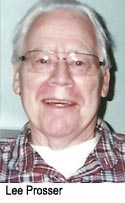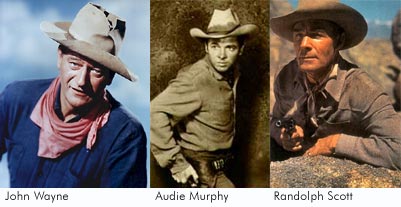 This columnist receives interesting mail concerning a wide range of paranormal and supernatural questions. It is impossible to address them all, or on an individual basis. Sometimes I receive mail on a shared subject that reflects the interests from groups of readers. That is the case with this column, which will discuss the American Western Film and roles of actors Audie Murphy, Randolph Scott, and John Wayne.
This columnist receives interesting mail concerning a wide range of paranormal and supernatural questions. It is impossible to address them all, or on an individual basis. Sometimes I receive mail on a shared subject that reflects the interests from groups of readers. That is the case with this column, which will discuss the American Western Film and roles of actors Audie Murphy, Randolph Scott, and John Wayne.
There can be a strong, logical case made for the continuing appeal of movies in which Audie Murphy, Randolph Scott, and John Wayne starred because of their straight-ahead action and politically incorrect approach. Let us review the historical aspect of these Western films. What do you notice about them? Well, it does not take an expert to recognize the attributes of western films before the advent of the 1970s decade: they appealed to a wide audience, reflected a sense of right and wrong, justice often went awry but always came out for the good and right in the end, it was all right for the hero to drink, smoke, or not, the hero oftentimes made headway with the heroine in various subtle ways but not graphically revealed, a sense of courtesy was oftentimes present even in the bad outlaws, both the hero and the villain generally settled their disagreements with a final gun battle, their was no race discussion since both the hero and the villain were white, the idea that the white man settled the west at the expense of the American Indian while any other minority groups followed in the footprints of the white man, etc. el. The list is endless.
So, given these varying aspects, where does the ghosts of it all come in? Simple. People are still viewing these movies and the actors in these movies throughout the world. All three actors mentioned in this essay made numerous Western films, and their roles defined them as well as the country which nourished their popularity. And, there is the written and biographical comments left behind by these actors and their biographers. Ghosts of the American consciousness still linger in American film. Does this mean Americans are looking backward in time for a more simple, politically incorrect time with a straight-out approach to issues with only black and white answers and no grays permitted? What does it all mean? Are the ghosts of the past still attracting the living of the present, and in what way? I have no answers. I only raise questions further brought about by other questions by the readers! What do you feel, what do you think, what do you see? As one reader wrote to me, “I would rather watch John Wayne in The Searchers rather than Clint Eastwood in Unforgiven because it is more faithful to the reality of the American west and what happened.” All right, then, that is one comment from a reader. Was she saying that she liked Wayne’s movie because it was politically incorrect? I think so, based on her further comments. I have had other readers of my column say similar things, which is their right and I respect the right of the readers to express their feelings on their topics.
What then, does it this mean? Are we essentially a nature of questioning mavericks hiding in the closet, reviving the ghosts of yesteryear, or are we learning from the lessons of our history? Do the ghosts of American film endure because certain movie approaches appeal to the mass, and it is only a minority that forces the majority to look another way? I have no answers, nor would I venture any answers because I feel the role of a columnist in such a situation is to write about topics that appeal or interest the readers, and respond to those readers where feasible. I would hazard a guess that if research was done, this information could also apply to American gangster films before the decade of the 1970s. But since the response has come from readers wanting to talk about the American western films and its ghosts, then this is what came about.
To each his own. I take no sides in this ongoing business of people saying they wished they lived in non-politically correct times. As an American, I live in the times I was given to live in, and at age 62, I have found them most interesting from a moral and cultural perspective!
If true, and accurate, as many film critics have stated over the decades, the American Film reflects the cultural values of the American people at any given moment in film time, and each generation re-defines what it likes best and does not like. I hope this column proves of interest to those who shared their feelings, comments, and observations with me about the American Western film and its lingering ghosts. Thank you, one and all!





